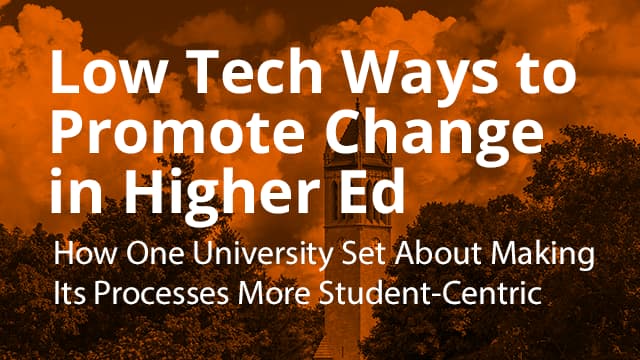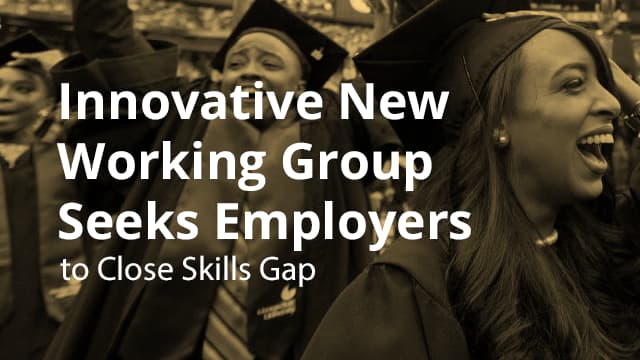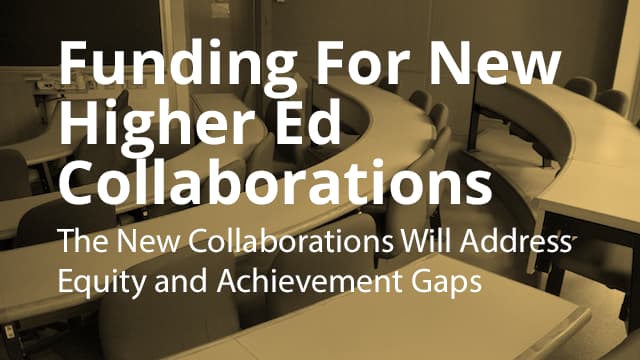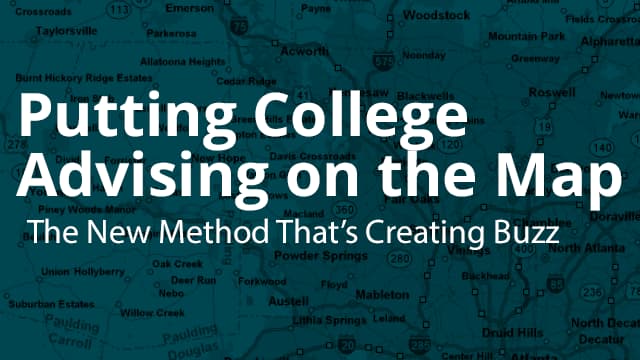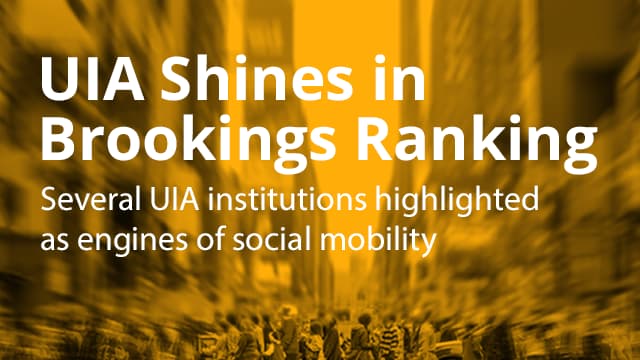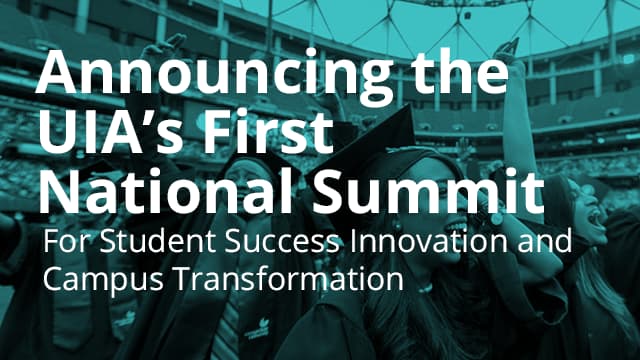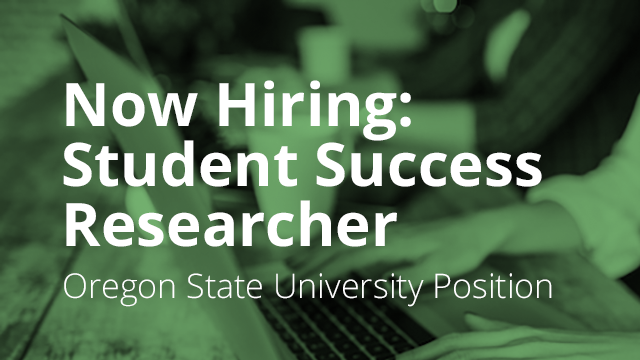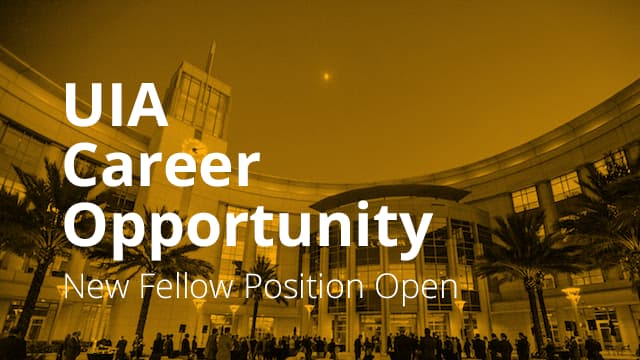When we talk about how to make higher education more student centric, we talk a lot about innovation. Innovation, however, isn’t synonymous with technology. In fact, a lot of the improvements we test and adopt across the UIA are simple, low tech changes aimed at simplifying the systems students navigate every day.
Great news! We’ve officially kicked off recruiting for a new national Employer Working Group (EWG) as a part of our college-to-career pathway initiative, Bridging the Gap from Education to Employment (BGEE). Launching this summer, this innovative working group will be comprised of over 25 diverse employers selected through a highly competitive process.
LOS ANGELES, Calif., June 26, 2018—While college campuses rarely reach outside their walls to collaborate with other campuses, ten postsecondary institutions have pledged to work together to share best practices, help pilot innovations and openly discuss risks and failures.
The new collaborations are the result of a challenge grant supported by ECMC Foundation and in partnership with the University Innovation Alliance (UIA), a group of 11 public research institutions committed to increasing the number and socioeconomic diversity of college graduates.
Earlier this year, several students at University of California, Riverside (UCR) found themselves stuck in a difficult situation. They had failed to register for a full-time course load, so they hadn't received their financial aid, but a hold on their accounts prevented them from enrolling in a full-time course load. It was what you might call “a financial aid loop”.
While just a few semesters ago, these students would have likely fallen through the cracks, UCR now tracks students proactively through a project called Monitoring Advising Analytics to Promote Success (MAAPS).
The UIA has always been deeply committed to the role of public universities as engines of social mobility, so we were proud last year when UIA institutions did exceptionally well in an important 2017 ranking by the Brookings Institution of which public universitites contribute most to social mobility.
We're delighted to announce that the University Innovation Alliance's first ever National Summit for Student Success Innovation and Campus Transformation will be taking place April 3 through April 5, 2018 in Atlanta, Georgia.
Passionate about student success? Great news! Oregon State University is hiring for a brand new Success Research and Data Coordinator position. This is a full-time, twelve month, fixed term professional faculty position that's part of the Division of Undergraduate Studies (DUS).
The DUS works to improve undergraduate eduacation at Oregon State with a particular emphasis on increasing & equalizing student success, retention, and graduation rates for all students. This role will take over the MAAPS data analyst role and work on other leading edge data projects.
Great news! There's a new UIA fellow position opening at the University of Central Florida in Orlando, Florida. The Office of the President at UCF is seeking an early-career professional to support its Alliance-related student success projects.
Do you create detailed project plans for your vacations? Are you more schedule driven than most cruise directors? Do you love checklists as much as meaningful, important work? Well, great news: the University Innovation Alliance is seeking an Operations Manager.
Job Description:
The Operations Manager will administer and control business operations functions in pursuit of the UIA’s strategic goals. These functions include internal processes and procedures, project management, budgeting, strategic planning, and other functions as assigned.
Last September President Obama announced a key change in the Free Application for Federal Student Aid or FAFSA, as it’s known. Beginning with the 2017-18 academic year, students will be able to apply for FAFSA as early as October first instead of waiting until January first of the new year.
While this change in federal policy was created with the intention of making it easier for students to apply for FAFSA and giving them more time to understand financial aid, it has real implications for institutions.

